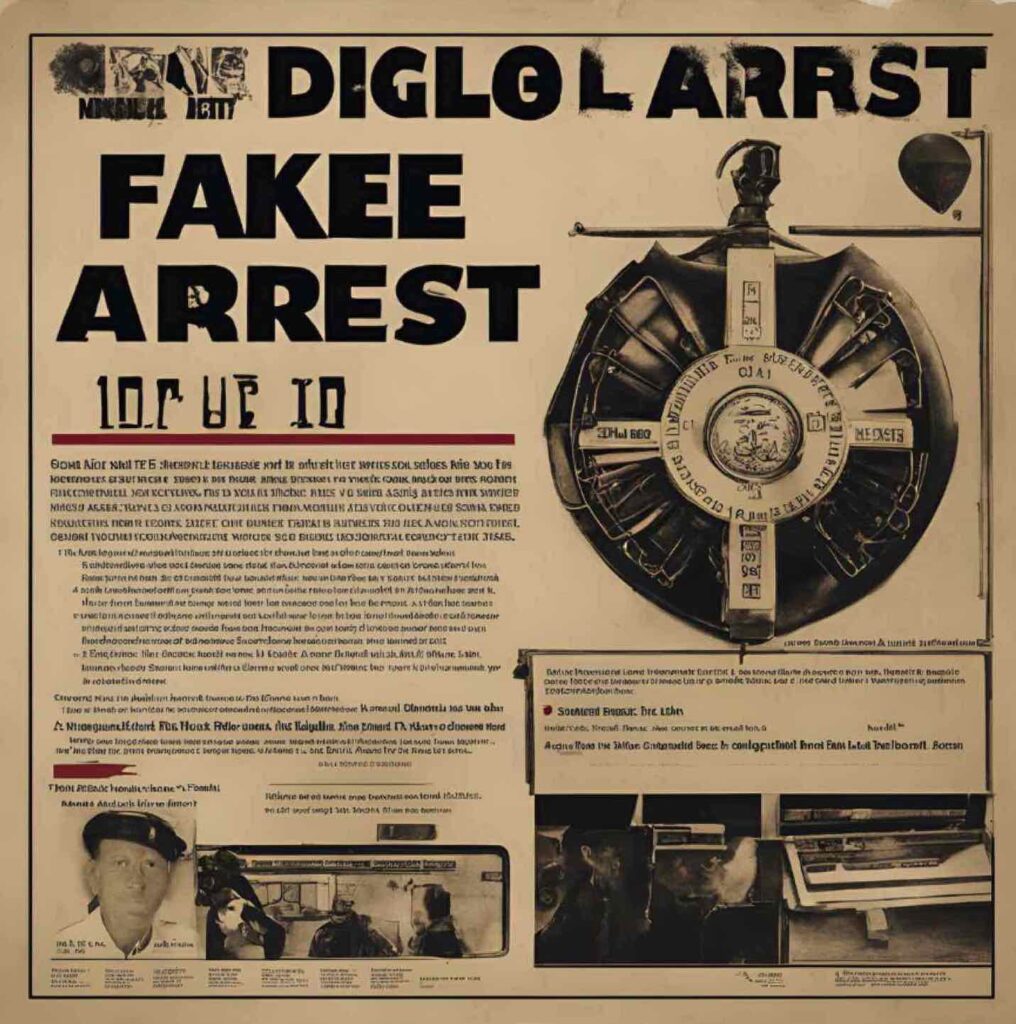Stay informed about the latest online scams targeting you today. Learn how scammers use innovative tactics, including AI, to exploit victims of all ages.
Cybercrime in India has escalated to a massive level. Even though the Reserve Bank of India, various banks, and other institutions have consistently warned about the risks of sharing bank account information or falling for alluring investment offers, their advice has largely been ignored. A report from ET reveals that between January and May 2024, nearly 950,000 complaints were submitted to the National Cyber Crime Reporting Portal, averaging one complaint every 14 seconds. In this period, Indian citizens suffered losses totaling approximately Rs 1,750 crore as a result of these fraudulent activities.
Warning: Beware of scams! Con artists are always coming up with new tactics to deceive their victims. They are now using artificial intelligence to pinpoint potential targets and take advantage of their weaknesses. Recent graduates are falling for fake job proposals, while some middle-aged parents face intimidation with threats of legal action. Additionally, elderly individuals are being persuaded to disclose sensitive financial details under the pretense of helping with Know Your Customer (KYC) procedures.
Although middle-aged and older adults are particularly vulnerable, younger individuals can also fall victim to the tactics employed by con artists. Here, we examine ten prevalent schemes used by scammers to deceive you—stay vigilant!
- Fraudulent KYC Updates Exposed: Protect Yourself from These Sneaky Tactics!
Fraudsters might reach out via SMS, phone call, or email, urging the target to update their KYC information by clicking on a provided link. This link leads to a site that compromises the victim’s device and extracts sensitive data. Legitimate banks do not send links for updating KYC online; they require customers to visit a branch or engage in face-to-face communication.
FAQs about Fraudulent KYC Updates
1. What is KYC and why is it important?
KYC stands for Know Your Customer. It is a process used by financial institutions to verify the identities of their clients to prevent fraud, money laundering, and other illegal activities.
2. How can I identify fraudulent KYC updates?
Look out for inconsistencies in the information provided, unusual requests for sensitive data, or notifications that seem out of place or too frequent without any prior context.
3. What should I do if I suspect fraudulent KYC activity?
Immediately report your concerns to your financial institution’s compliance department or customer service team. They will guide you on the next steps to secure your account.
4. Can fraudulent KYC updates lead to identity theft?
Yes, if your personal information is accessed through fraudulent means, it can be used to impersonate you and facilitate identity theft.
5. How often should I update my KYC information?
Many institutions require updates every one to three years, but it’s advisable to review your information regularly and update it whenever there are significant changes in your circumstances.
6. Are there specific signs that indicate a KYC update request might be fraudulent?
Yes, red flags include unsolicited emails or messages requesting immediate action, poor grammar or spelling errors in communications, and offers that seem too good to be true.
2. Credit Card Fraud Alert: Protect Yourself from Shady Transactions Now!
Fraudsters might contact you while posing as company executives, alleging that a significant purchase has been made using your credit card and asking for your confirmation. The credit card they mention is fraudulent, and when you try to call back, you’re connected to another scammer who claims they can help. After gaining your trust, they will ask for your card information, CVV, and OTP. If the card is indeed registered in your name, you’ll receive a text message regarding the transaction. Always verify with your bank.
FAQs for Fraudulent Credit Card Transactions
1.What should I do if I notice a fraudulent transaction on my credit card?
Immediately contact your credit card issuer to report the fraudulent charge. They can help you dispute the transaction and protect your account.
2. How can I tell if a transaction is fraudulent?
Look for charges you don’t recognize, purchases that exceed your usual spending patterns, or transactions made in locations where you haven’t been.
3. Will I be responsible for paying for fraudulent transactions?
Generally, you are not liable for fraudulent charges as long as you report them promptly. Most credit card companies have zero liability policies.
4. How can I prevent future fraudulent transactions on my credit card?
Use strong passwords, enable two-factor authentication, monitor your statements regularly, and consider using virtual cards for online purchases.
5. What information do I need to provide when reporting a fraudulent transaction?
Be prepared to provide details such as the transaction amount, date, vendor name, and any other relevant information that may assist in the investigation.
3. Think You’re Safe? Discover the Shocking Truth About False Money Transfers!

Individuals may get a fraudulent text indicating that funds have been deposited into their account. Subsequently, the scammer reaches out via phone, asserting that the transaction was a mistake and requests that the victim send the money back. It’s important to note that this text is not from the bank, and no real funds were ever transferred. Always verify your bank account to ensure you have received any money before taking any action.
FAQs for False Money Transfers
1. What are false money transfers?
False money transfers refer to transactions that are either fraudulent or based on misinformation, resulting in the sender believing they have successfully transferred funds when they have not.
2. How can I identify a false money transfer?
Signs of a false money transfer include unexpected delays, lack of confirmation from the recipient, discrepancies in transaction details, and requests for personal or financial information before completion.
3. What should I do if I suspect a false money transfer occurred?
Immediately contact your bank or payment provider to report the issue. They can assist in investigating the transaction and potentially recovering lost funds.
4. Can false money transfers be reversed?
In some cases, yes. If reported quickly enough, banks may be able to reverse unauthorized transactions. However, it depends on the specific circumstances and timing.
5. Are there any legal implications for engaging in false money transfers?
Yes, participating in or facilitating false money transfers can result in criminal charges, fines, and civil lawsuits depending on the severity of the fraud involved.
6. How can I protect myself from falling victim to false money transfers?
Always verify recipient details before sending funds, use secure payment methods, enable two-factor authentication on accounts, and stay informed about common scams.
Customer Liability in Unauthorised Electronic Banking Transactions
4. Think You’re Safe? These Customs Scams Could Cost You Big!
In this fraudulent scheme, the target gets a notification stating that customs has seized a package with illegal items. Overwhelmed by fear, the individual often consents to pay a bribe to fix the situation. In some cases, they might also be instructed to transfer funds to facilitate the shipment’s release.
Exercise caution; clicking on links sent by scammers might allow them to infiltrate your device. If you get a call like this, hang up right away and notify the authorities about the number.
FAQs About Fraudulent Customs Scams
1. What is a customs scam?
A customs scam involves fraudulent activities where scammers impersonate customs officials to extract money or personal information from individuals or businesses.
2. How can I identify a customs scam?
Look out for unsolicited emails or calls claiming you need to pay fees, provide personal information, or confirm shipments urgently, especially if they use threatening language.
3.What should I do if I receive a suspicious communication?
Do not respond or provide any information. Verify the legitimacy by contacting the official customs office directly using contact details from their official website.
4. Are there specific signs that indicate a customs scam?
Yes, common signs include poor grammar and spelling, generic greetings, requests for payment via unusual methods (like gift cards), and urgent demands for action.
Think Twice! Those Simple Tasks Could Lead to Serious Scams!
Fraudsters frequently lure individuals by offering large payments for easy activities, like liking videos on YouTube or engaging with posts on social media. Once these tasks are finished, the victim is coerced into putting money into cryptocurrencies or other investments, all while being promised generous profits. To create an illusion of authenticity, a minor amount might be added to the victim’s account. However, when the victim eventually invests a larger sum, the scammers vanish with their funds. Keep in mind that Opportunities that promise quick cash are fraudulent. Stay vigilant against them.

Faqs : Easy Money Scams Are Everywhere Right Now!
1. What are common signs of a money-making scam?
Look for promises of quick and easy money, high payouts for minimal work, and requests for upfront fees or personal information.
2. How can I verify if an opportunity is legitimate?
Research the company online, check reviews from other users, and look for any red flags such as vague contact information or pressure tactics.
3. What should I do if I think I’ve been scammed?
Report the scam to local authorities, notify your bank or credit card company, and consider changing your passwords to secure your accounts.
4. Are there legitimate ways to earn money online?
Yes, you can find genuine opportunities like freelance work, tutoring, or selling handmade items on reputable platforms that do not require upfront payments.
5. Why do scammers target people looking for easy money?
Scammers exploit the desire for financial security and quick solutions, often preying on individuals who may be desperate or uninformed about online risks.
6.Don’t Fall for Deceptive Stock Trading: Protect Your Money Now!
Advertisements on social media frequently entice people with the allure of significant profits, claiming returns between 30% and 40% from stock investments. Unsuspecting individuals are directed to a deceptive website that showcases a made-up investment portfolio. At first, the scammers promise astonishing returns on minimal investments, encouraging victims to contribute even larger sums. Yet, when these victims try to retrieve their money, the scammers vanish without a word. Keep in mind: Any scheme that promises exceptionally high returns is likely a scam. Stay vigilant and avoid being deceived.
FAQs Beware of Fraudulent Stock Trading Schemes :
1: What are fraudulent stock trading schemes?
Fraudulent stock trading schemes are deceptive practices designed to manipulate or mislead investors, often involving false information or promises of unrealistic returns to lure victims.
2: How can I identify a fraudulent scheme?
Look for red flags such as guaranteed high returns, pressure to invest quickly, lack of transparency, and unsolicited offers. Always conduct thorough research before investing.
3: Are all high-return investments fraudulent?
Not all high-return investments are fraudulent; however, if the promised returns seem too good to be true compared to market averages, it’s important to approach with caution.
4: How does social media play a role in these scams?
Fraudsters often use social media platforms to promote their schemes, leveraging persuasive marketing tactics that can easily reach large audiences without proper regulation.
7. Fraudulent Scheme Involving Impersonation of a Family Member for Arrest
Fraudsters might impersonate law enforcement officials and tell the target that a family member is facing imminent arrest for a serious offense. They often request money to prevent the charges from being filed, and some may utilize AI technology to replicate the voice of the relative. If you get such a call, remain calm. It’s important to confirm the details with your family member before taking any further steps, ensuring you don’t become a victim of this scam.
On June 10, my driver received a call from an unknown number informing him that his son had been arrested. He attempted to go to the police station, but before doing so, he received several calls stating that his son could be released for a payment of 9,000 rupees. While trying to contact his son, he discovered that his son’s phone was turned off. He then reached out to me for help, and I tried calling the number he provided but found it unreachable. I advised him to refrain from offering any bribes until he had the chance to see his son, as I was confident that his son was not involved in any unlawful activities and so was he.
However, by the time he arrived at the police station, he discovered that no one had been arrested.
FAQs for False Family Member Arrest Scam
1. What is the false family member arrest scam?
The false family member arrest scam involves scammers claiming that a relative has been arrested and needs immediate financial assistance to secure their release.
2. How do scammers usually contact victims?
Scammers often use phone calls, text messages, or emails to reach out to potential victims, posing as law enforcement or legal representatives.
3. What red flags should I watch out for?
Red flags include urgent requests for money, lack of specific details about the alleged incident, and pressure to act quickly without verifying the information.
4. How can I verify if a family member has actually been arrested?
You can check with local law enforcement agencies or police station records directly, or contact other family members to confirm the situation.
5. What should I do if I receive a suspicious call about a family member’s arrest?
Do not send any money or share personal information. Hang up and independently verify the claim by contacting your family member directly.
6. Are there any common methods used for payment in these scams?
Common payment methods include wire transfers, prepaid debit cards, or gift cards, all of which are difficult to trace and recover once sent.
7. Can reporting these scams make a difference?
Yes! Reporting such scams to local authorities can help build awareness and possibly lead to investigations that prevent others from falling victim.
8. Shocking Fake Arrest Threat: Are Scammers Targeting Your Digital Life?
In a different type of scam, a con artist pretends to be a police officer and claims that the victim or someone close to them has committed a crime. Following this, an impersonator posing as a CBI official may conduct an interrogation through video or audio calls, intimidating the victim with threats of an online arrest. It’s important to note that law enforcement has stated they do not perform digital arrests or interrogations online. If you find yourself in such a scenario, hang up right away and notify the authorities about the phone number involved.

FAQs for Fake Digital Arrest Threat
1.What is a fake digital arrest threat?
A fake digital arrest threat is a fraudulent message or notification claiming that an individual is facing legal action or arrest, usually to extort money or personal information.
2. How can I identify a fake digital arrest threat?
Look for suspicious signs such as generic greetings, poor grammar, unknown sender addresses, and demands for immediate payment without official documentation.
3.What should I do if I receive a fake arrest threat?
Do not respond or provide any personal information. Report the incident to your local authorities and consider notifying your email provider about the phishing attempt.
4.Can these threats result in actual legal consequences?
Generally, no; they are scams meant to scare individuals into compliance. However, it’s always best to verify with law enforcement if you have concerns.
5. Who typically sends these types of threats?
Scammers often use spoofed emails or phone numbers to impersonate government agencies or law enforcement officials as part of their scheme.
6.Are there any legal protections against receiving such threats?
Yes, laws against fraud and harassment exist; reporting the scam can help authorities take action against the perpetrators.
7. What steps can I take to protect myself from future scams?
Educate yourself about common scams, use strong passwords, enable two-factor authentication on accounts, and be cautious when sharing personal information online.
9. Unmasking the TRAI Impersonation Fraud: Protect Yourself from Scammers!
On Friday morning, I received a call from an international number with the country code +82 89- 702-156. Initially, I assumed it was my friend calling from South Korea. However, the caller introduced himself as Mr. Sharma and spoke in a stern tone, claiming that they had a complaint against me and were representing TRAI. It took me a moment to realize that he was actually a scammer pretending to be from the Telecom Regulatory Authority of India (TRAI).
I had him on the line for a bit, trying to understand how everyone would respond when I explained my dire situation. When I pleaded for help, he spoke to me sharply, saying he couldn’t assist but asked me to wait a few minutes. Eventually, he suggested that I consult a lawyer and informed me that I would need to pay 4,500 rupees to address the complaint against me.
You receive a call stating that your phone number is linked to unlawful activities and that your service will be terminated. The call then connects you to a scammer posing as an official from the cybercrime division of the police. It’s crucial to understand, however, that TRAI clarifies that only telecom companies have the authority to disconnect phone services, not TRAI itself.
FAQs for TRAI Impersonation Fraud
1. What is TRAI impersonation fraud?
TRAI impersonation fraud occurs when scammers pose as officials from the Telecom Regulatory Authority of India to deceive individuals or organizations, often aiming to extract personal information or money.
2. How can I identify a TRAI impersonation scam?
Signs of a TRAI impersonation scam include unsolicited calls or messages claiming to be from TRAI, requests for sensitive information, and offers that seem too good to be true regarding telecom services.
3. What should I do if I receive a suspicious call claiming to be from TRAI?
If you receive such a call, do not provide any personal information. Hang up and report the incident to the local authorities or the official TRAI website.
4. Are there any legitimate communications from TRAI that I should expect?
Yes, while TRAI may contact consumers for feedback or compliance checks, they will never ask for sensitive personal details like passwords or bank account information over the phone.
5. Can I report instances of impersonation fraud directly to TRAI?
Absolutely! You can report suspected impersonation fraud on the official TRAI website through their designated complaint section or customer service contacts.
6. What steps does TRAI take against impersonation fraud?
TRAI actively investigates reported cases of impersonation and collaborates with law enforcement agencies to track down and penalize perpetrators involved in such fraudulent activities.






